Here's Why American Labor Unions Are Calling for a Ceasefire in Gaza
Unions do not exist to raise wages. Unions exist to fight for dignified lives for all.
Thanks for reading JoeWrote. Without your support, I couldn’t do this.
You can support my work by liking (click the ❤️ up top), sharing this article, and becoming a free or paid subscriber. I recently introduced a “Pay What You Can” structure, so paid subscriptions start as low as $1.
Thank you for your support. In Solidarity — Joe
On December 1st, the United Auto Workers (UAW) issued a statement calling for a ceasefire in Israel-Palestine. While the UAW is the largest American union to call for an end to the bombing of Gaza, it is not the only one. The Chicago Teachers’ Union, Communication Workers of America, Amazon Labor Union (Democratic Reform Caucus), and over 3000 other signatories have joined the statement created by UFCW 3000 and the United Electrical, Radio and Machine Workers of America imploring a ceasefire, as well as the return of all political prisoners, and the immediate delivery of humanitarian aid into Gaza.
Having recently been in the public eye due to its strikes against the Big Three automakers, the UAW’s announcement garnered widespread public attention. To many Americans, it was puzzling. Why would the UAW, a union representing autoworkers, take a stance on a foreign policy issue as divisive as Israel-Palestine? Shouldn’t UAW President Shawn Fain “stay in his lane” and focus on representing workers while avoiding anything that could turn away potential members and public supporters?
While labor unions issuing statements on Israel-Palestine might seem foolish, it is actually one of the core reasons these unions exist. While the first focus of every union is to improve the lives of its members by negotiating for better working conditions, this only scratches the surface of the labor movement’s goals. Unions do not exist to raise wages. Unions exist to fight for a dignified life for all. Under the capitalist system, the ruling class, comprised of capitalists and politicians, controls the global economy, international agencies (the United Nations, International Monetary Fund, etc.), and almost every nation’s government and military. The working class, comprised of those not in the ruling class, has only one way to counter this overwhelming disadvantage — solidarity. By uniting together, the people without power can contest those who hold power and force them to concede. As the old labor saying goes, “Divided we beg. United we demand.”
Whether explicitly stated or not, the belief that all human beings deserve a dignified, quality life, free from the oppressive tendencies of the capitalist ruling class, is at the heart of every union. Most often these oppressive tendencies manifest in the desire for profit, with bosses lowering wages and increasing working hours to squeeze every cent out of their workers. So, unions have largely existed as an economic counter-force, protecting the working class from profit-seeking companies.
But while profiteering is the most common threat to the livelihood of the working class, it is not the only one. Racism, imperialism, colonialism, war, and environmental destruction all threaten the world’s workers. It is not capitalists who are drafted to fight imperialist wars, and the wealthy can always relocate away from battlefields and hurricanes. It is the working class who, absent the means to flee, will be forced to fight, starve, and die. Naturally, labor unions, which are made up of the people most endangered by these phenomena, recognize these threats no different than they recognize the hazards of their workplace. They respond accordingly, campaigning against war and colonialism just as they do against unpaid overtime and offshoring.
“Unions are about solidarity. Unions are about groups of people with less power and less rights coming together to challenge a more powerful, wealthier, more connected entity; about the little guy standing up to the big guy, and demanding justice, fairness, and humane treatment. And that is certainly what we are seeing the Palestinian people do as they implore the bombing to stop.” - Cynthia Nixon, speaking as a SAG-AFTRA member on the need for a ceasefire.
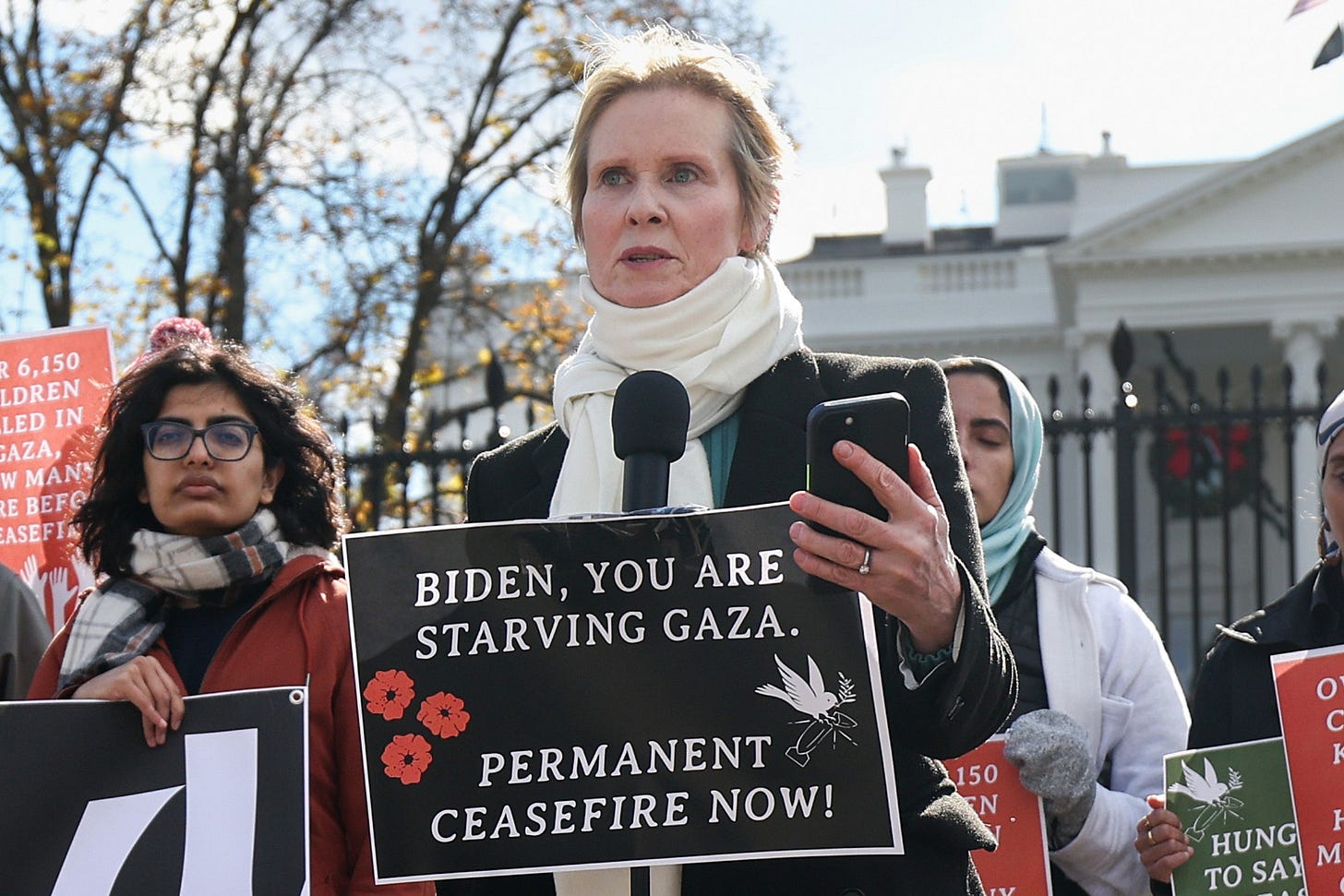
We see this sentiment manifest not only in the current Gazan crisis but in the past stances labor unions have taken against similar crimes throughout history. In 1940, at a time when many Americans wanted the United States to stay out of World War II, the UAW called upon its workers to accept increased working hours to produce the airplanes that Great Britain used to fight Nazi Germany. In explaining the decision, UAW Vice President Walter Reuther said:
“Why should Labor concern itself, some may ask, with speeding plane production?… Labor is concerned because wherever Nazism is victorious the precious liberties that differentiate free men and free workers from slaves are destroyed.”
Thanks to the sacrifices of the working class, the United States fulfilled the role of “the arsenal of democracy” during the Second World War and fascism was defeated.
However, the labor movement’s fight for social justice was not limited to the causes that shared the interests of the federal government. Following World War II, the same Walter Reuther, then the President of the UAW, led the union in steadfast support of the civil rights movement. He frequently stood shoulder-to-shoulder with Dr. Martin Luther King Jr. and other civil rights activists, including at the 1963 March on Washington. When King was assassinated while supporting a mostly-Black sanitation workers’ strike in Memphis Tennessee, Reuther flew across the country to take MLK’s place, even though the workers were not part of his union.
Reuther and the UAW’s support for Black liberation was so pronounced that MLK’s widow, Coretta Scott King, eulogized Reuther when he passed in 1970.
“Walter Reuther was to Black people the most widely known and respected White labor leader in the nation. He was there when the storm clouds were thick. We remember him in Montgomery. He was in Birmingham. He marched with us in Selma, and Jackson, Mississippi and Washington… Only yesterday there he was once more in Charleston, South Carolina, the leader of a million and a half workers giving personal support to a strike of only 400 black women.” - Coretta Scott King
But Reuther’s activist leadership wasn’t the product of his personal politics. He was merely a member of a movement that recognized a threat to one worker was a threat to every worker and responded accordingly. The labor movement’s support for global social justice continued long after Reuther passed, extending to nearly every global struggle throughout the 20th century.
In 1984, Californian dockworkers of the International Longshore and Warehouse Union (ILWU) refused to unload cargo from the South African ship Nedlloyd Kimberly in solidarity with the anti-apartheid movement. The strike lasted for 11 days and drew international attention to the plight of oppressed South Africans. It should come as no surprise that the ILWU recently passed a statement calling for a ceasefire in Palestine.
The labor movement’s support for anti-apartheid activists was so strong that, after Nelson Mandela was released from prison in 1990, he traveled to UAW Local 600 in Dearborn, Michigan to personally thank the organization for opposing apartheid. UAW president Owen Bieber, pictured with Mandela below, twice traveled to South Africa to petition for the release of imprisoned anti-apartheid activists.
Though it has not always been as uniform as we would hope for (unions were frequently obedient to employers and the Democratic Party throughout the 20th century), the labor movement took action against numerous other international crimes, including the U.S. government’s support for the Contras, the Vietnam War, and even the embargo on Cuba. No matter how different issues like wage cuts in Michigan and segregation in South Africa may seem, labor unions have staunchly opposed both for the same reason — the need to protect the powerless from the aggressions of the powerful.
As most of the ruling class’s aggression comes in the form of economic exploitation, unions are most commonly found fighting for higher pay and better hours. But, as that aggression moves from economics to militarism, unions find themselves once again needing to assert the working class’s right to a dignified existence. This belief is articulated in the aforementioned statement calling for a ceasefire in Gaza, stating:
“The rising escalation of war and arms sales doesn't serve the interests of workers anywhere. In the end, we all want a place to call home and for our children to be safe. Working people around the world want and deserve to live free from the effects of violence, war and militarization.”
In other words, there’s little difference to the average worker if their child is starved by poverty wages in Detroit or by a military siege in Gaza.
The reason it may seem odd that the UAW, Starbucks’ Workers United, and other labor unions are issuing statements on armed conflicts is because the American labor movement has been so devastated by 20th century neoliberalism that it lacked the power or capacity to address anything else outside the immediate workplace concerns of its members. As the labor movement regrows in the 21st century, unions are gaining both political and cultural power, enabling them to once again flex their muscles and assert their belief that the world’s working class is entitled to peace, prosperity, and dignity. Any attempt to violate this belief, whether through low wages, systemic racism, or military occupation, will be met with steadfast solidarity.
Thank you for reading JoeWrote. If you appreciated this post, I would ask you to subscribe (for free or paid) and forward this to a friend.


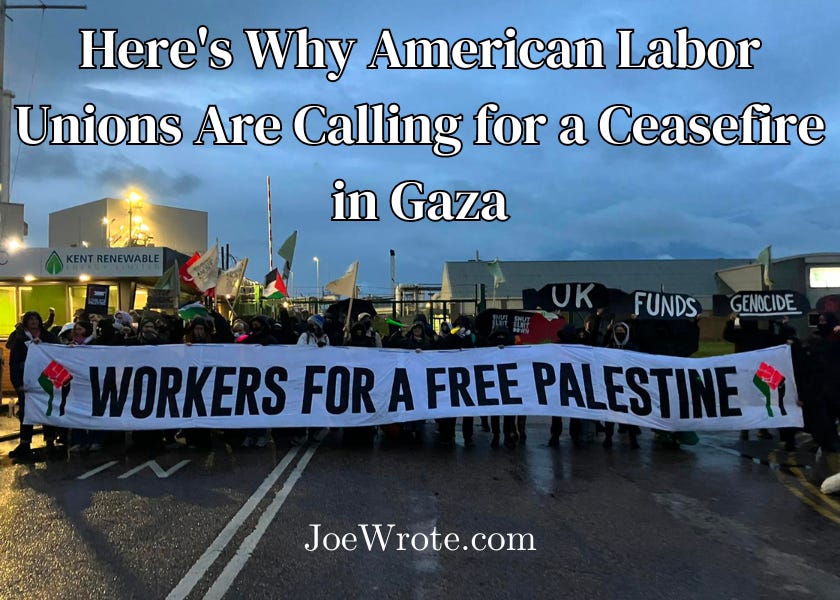
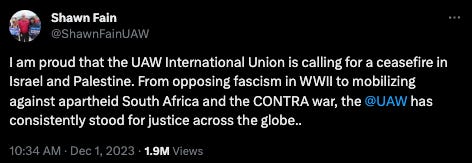
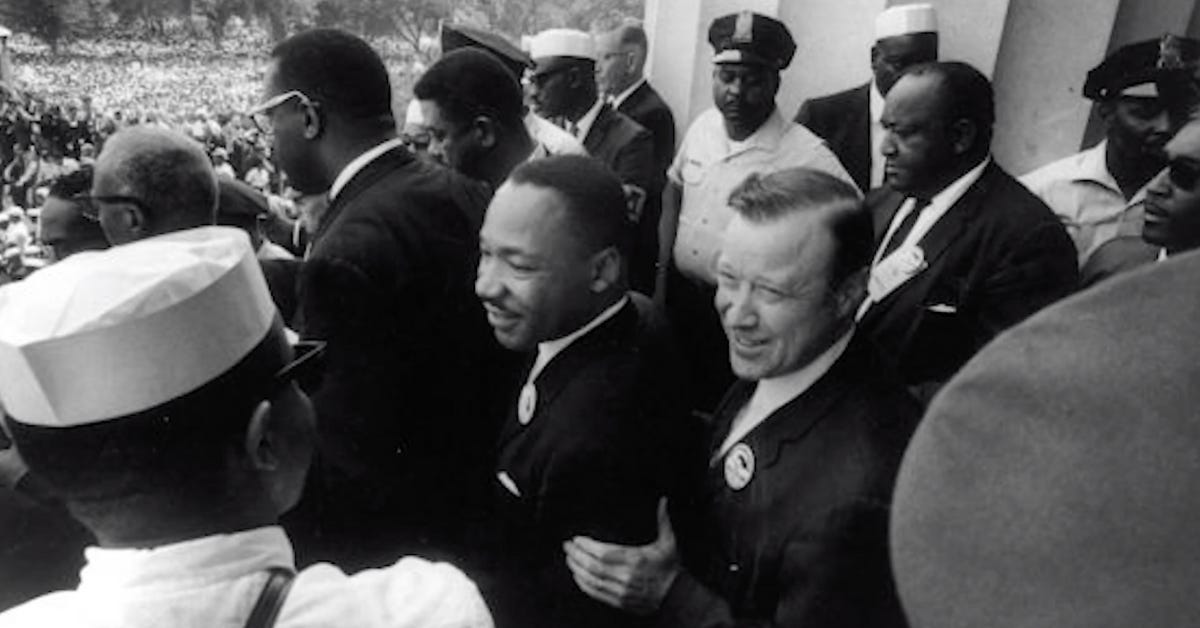
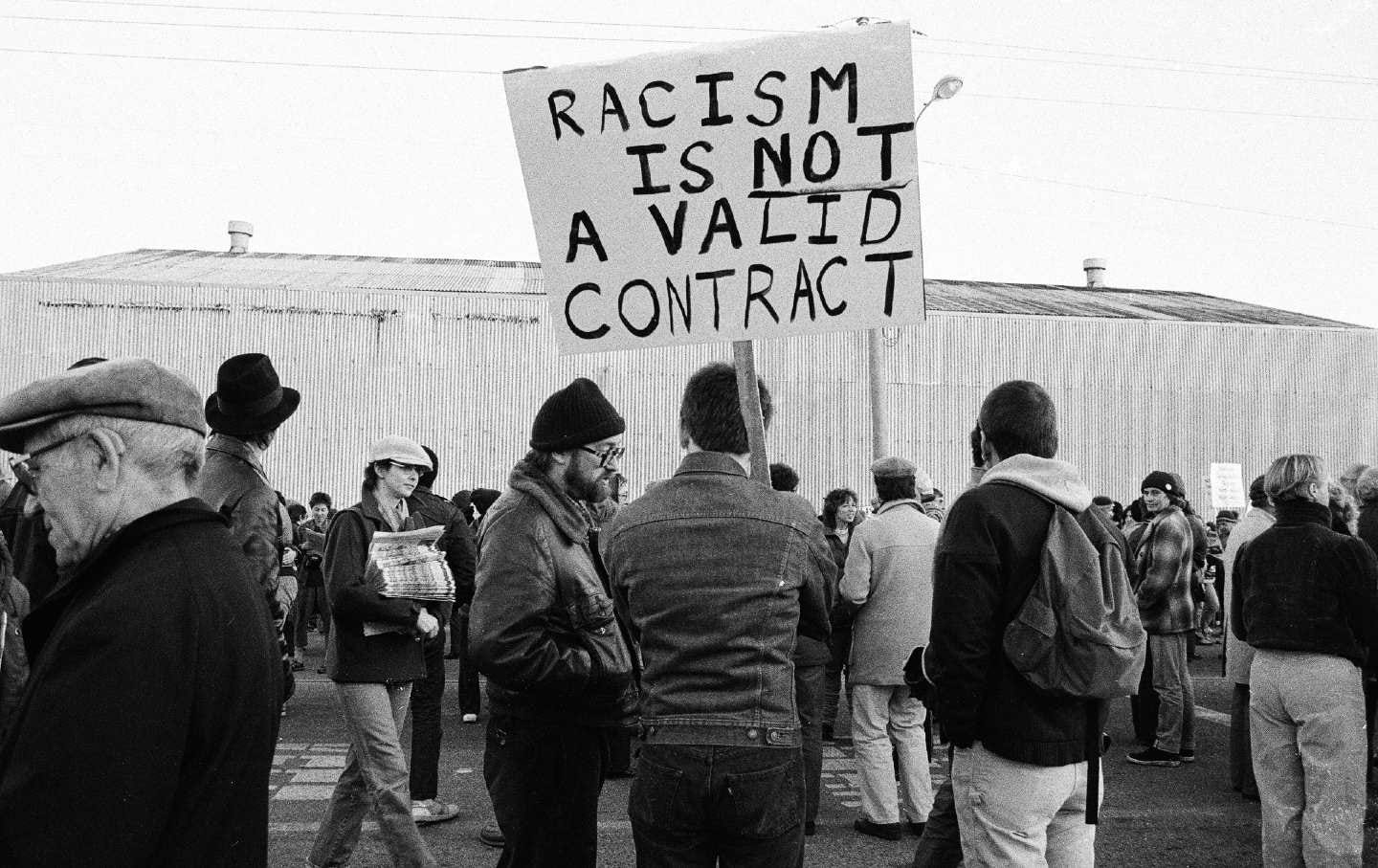
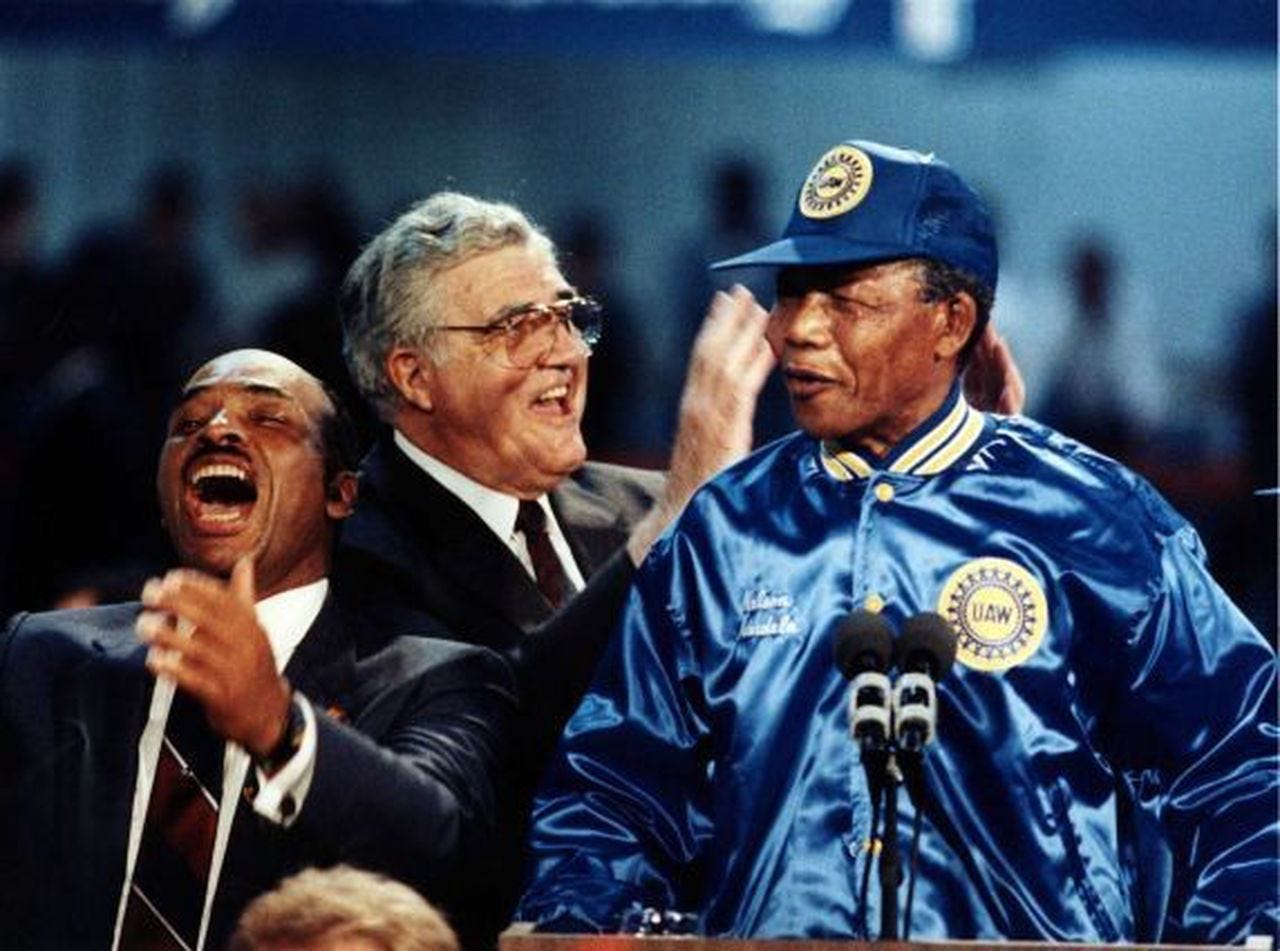
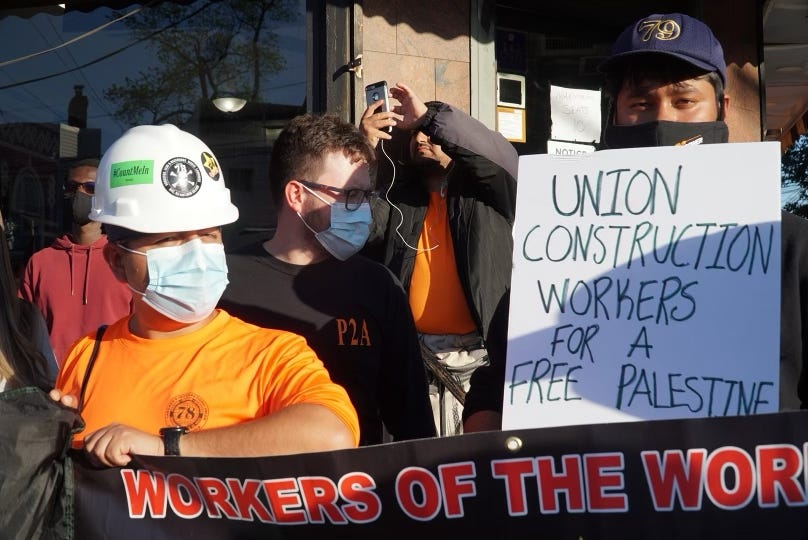
Valid and thoughtful perspective, Joe. I'm glad you mentioned how unions have aligned themselves with political parties when advantageous because it is important to understand that unions are a political animal too. I'm not so sure union leadership today is any different from the corporate or government elites if you compare their 'privilege' to the average worker they represent. I think that's why the story of Chris Smalls and Amazon was so powerful. He was the classic underdog. Would you ever consider a deep dive into how the leadership of unions has changed from its inception to now?